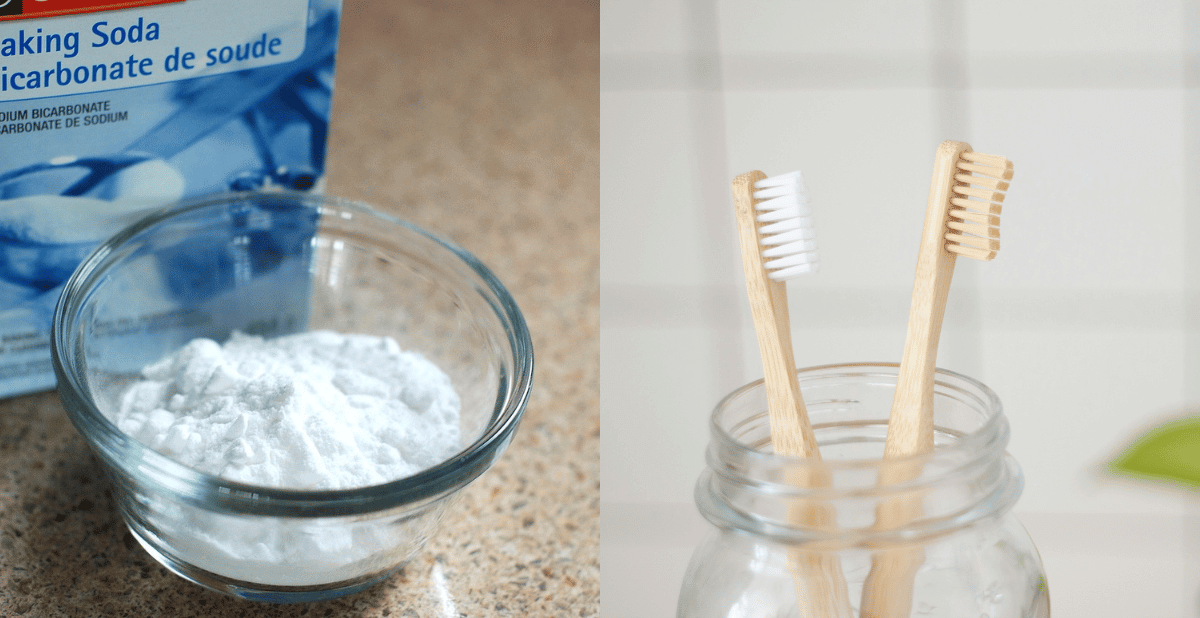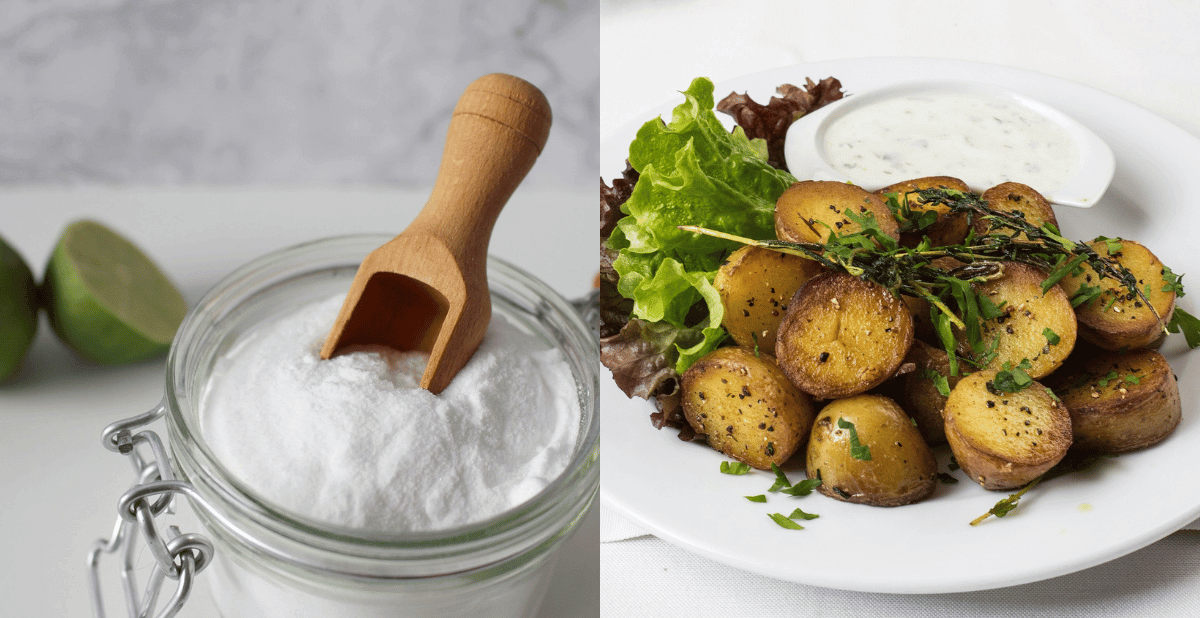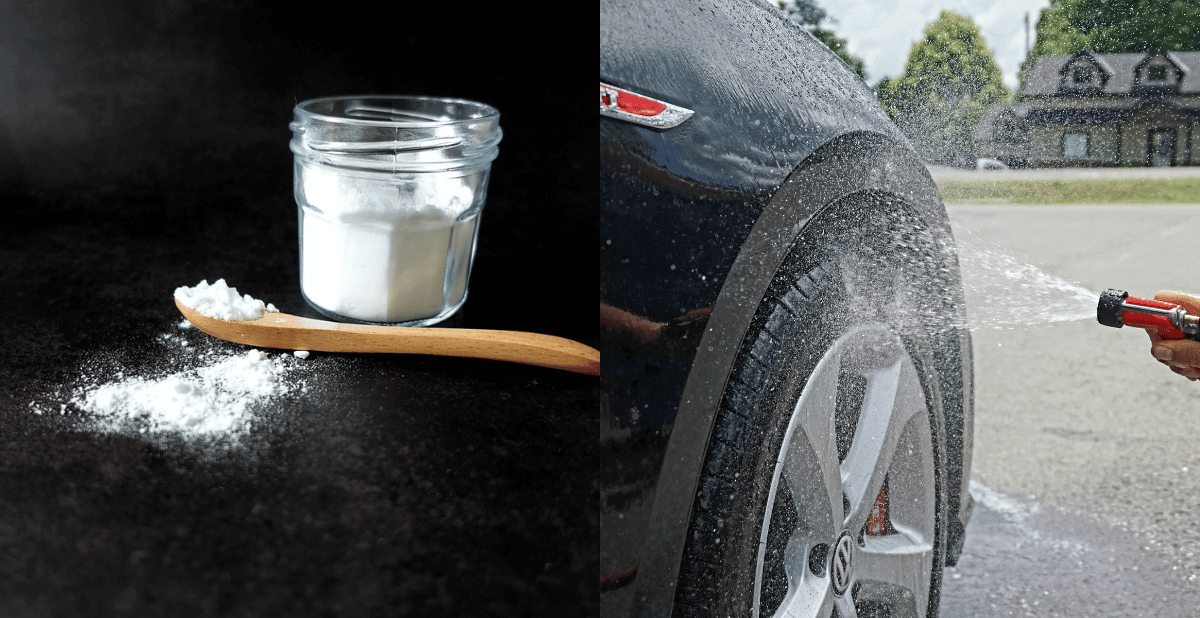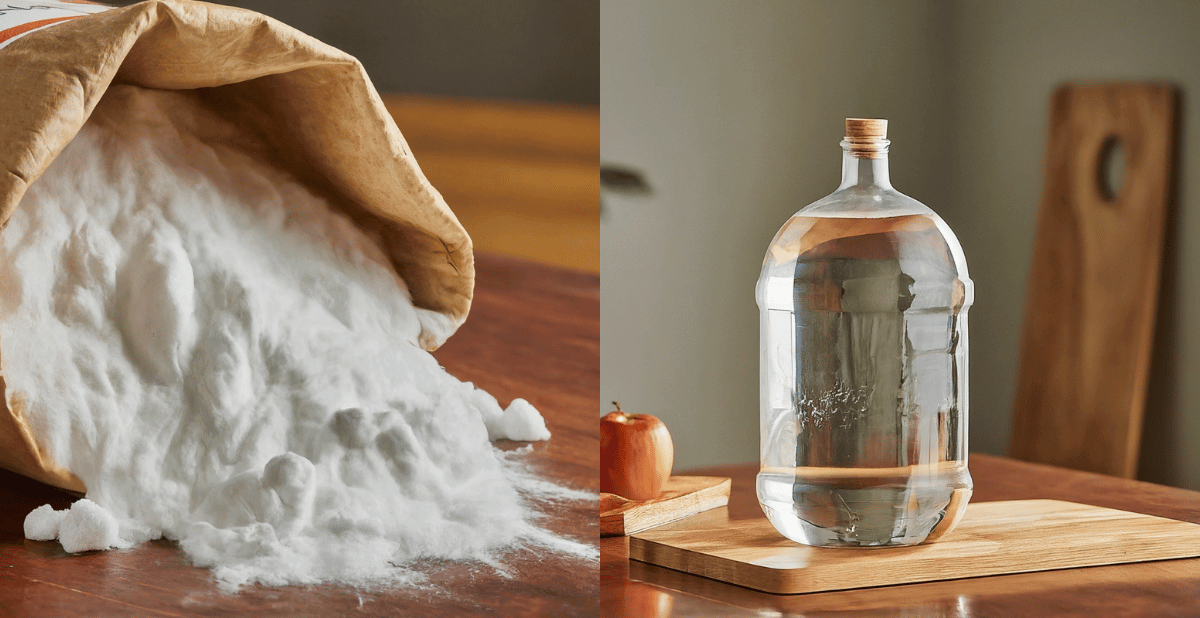Many people are curious about natural remedies when it comes to maintaining a healthy smile. One common question is: Does baking soda remineralize teeth?
This article delves into the science behind baking soda and its potential benefits for oral health.
Key Takeaways:
- Baking soda can help neutralize acids in the mouth, potentially aiding in remineralization.
- While baking soda has mild abrasive properties, it should be used cautiously to avoid enamel erosion.
- Combining baking soda with fluoride toothpaste may enhance its effectiveness in preventing tooth decay.

The Science Behind Baking Soda
Baking soda, or sodium bicarbonate, is a common household item known for its versatility.
In dental care, it is praised for its ability to neutralize acids and remove surface stains.
But how does it work?
Baking soda's mild abrasive properties help scrub away plaque and stains from the tooth surface.
Additionally, it rapidly neutralizes biofilm acids, which can contribute to enamel demineralization.
This neutralization process is crucial in maintaining a balanced oral environment.
Tooth Enamel and Its Importance
Tooth enamel is the hard outer layer of your teeth that protects them from decay.
However, it can wear down over time due to acidic foods, poor oral hygiene, and other factors.
Enamel erosion can lead to tooth sensitivity and increased risk of cavities.
Preventing enamel erosion is essential for overall oral health.
Baking soda can help by neutralizing acids that cause enamel demineralization.
Still, it's important to use it correctly to avoid damaging the enamel further.
Baking Soda Toothpastes
Many commercial toothpastes contain baking soda as an active ingredient.
These baking soda toothpastes are designed to enhance cleaning while being gentle on the enamel.
They can help remove surface stains and neutralize plaque acids.
Using baking soda toothpaste can be an effective part of a good oral hygiene routine.
It's also essential to choose a product that is approved by the American Dental Association to ensure its safety and efficacy.
The Remineralization Process
Remineralization is the process of redepositing minerals in the tooth enamel after being removed by acids.
This process is vital for repairing early signs of tooth decay and maintaining strong teeth.
Baking soda can aid in remineralization by neutralizing acids in the mouth.
When the biofilm pH is balanced, minerals like calcium and phosphate can more easily redeposit on the tooth surface, strengthening the enamel.
Combining Baking Soda with Fluoride
Fluoride is a well-known agent in preventing tooth decay and promoting remineralization.
Combining baking soda with fluoride toothpaste can enhance the remineralization process.
Fluoride helps to rebuild tooth structure by attracting minerals to the enamel.
Using a fluoride dentifrice with baking soda can provide a dual action: the baking soda neutralizes acids, while the fluoride strengthens the enamel.
This combination can be particularly effective in preventing dental caries.
Baking Soda and Gum Disease
Gum or periodontal disease is a common oral health issue that can lead to tooth loss if left untreated.
Baking soda's ability to neutralize acids can help maintain a healthier oral environment, potentially reducing the risk of gum disease.
Brushing teeth with baking soda can help remove plaque, a sticky bacteria film contributing to gum disease.
However, it's important to use it gently to avoid irritating the gums.
Baking Soda for Tooth Sensitivity
Tooth sensitivity can be a painful condition caused by enamel erosion or gum recession.
Baking soda can help alleviate tooth sensitivity by neutralizing acids and protecting the enamel.
Using baking soda toothpaste can provide relief for sensitive teeth.
Consulting with a dentist is crucial to ensure that baking soda is appropriate for your specific condition.
Baking Soda and Bad Breath
Bad breath, or halitosis, can be caused by various factors, including poor oral hygiene and the presence of dental biofilm.
Baking soda can help combat bad breath by neutralizing odors and maintaining a balanced oral environment.
Brushing with baking soda can help remove the bacteria that cause bad breath.
Additionally, its mild abrasive properties can help clean the tongue and other areas of the mouth where bacteria may reside.
Baking Soda and Acidic Foods
Acidic foods and drinks can contribute to enamel erosion and tooth decay.
Baking soda can help neutralize the acids from these foods, protecting the enamel from damage.
Rinsing your mouth with a baking soda solution after consuming acidic foods can help neutralize the acids and prevent enamel erosion.
This simple practice can be an effective part of your oral care routine.
Baking Soda and Plaque Control
Baking soda, or sodium bicarbonate, is a powerhouse when it comes to controlling plaque.
It can rapidly neutralize biofilm acids, which are the culprits behind plaque formation.
When left unchecked, plaque can harden into tartar, leading to gum disease and tooth decay.
Using baking soda dentifrices can keep plaque at bay and maintain a healthier mouth.
The gentle abrasiveness of baking soda also helps in scrubbing away the sticky film that forms on teeth, ensuring a cleaner and brighter smile.
Baking soda's ability to neutralize biofilm acids plays a crucial role in preventing dental decay.
When biofilm acids are neutralized, the environment in your mouth becomes less acidic, which is beneficial for tooth enamel.
This pH level shift helps remineralize teeth, allowing minerals to redeposit onto the enamel surface.
Regular use of baking soda in your oral care routine can be a game-changer in maintaining optimal dental health.
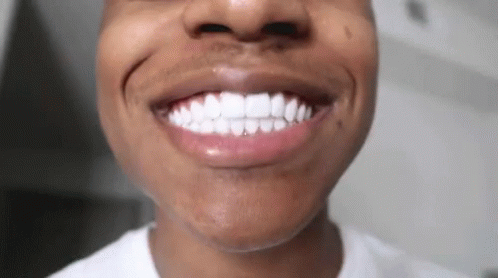
Baking Soda and Whitening Teeth
When it comes to achieving a brighter smile, baking soda sodium bicarbonate is often touted as a natural whitening agent.
Baking soda's mild abrasiveness helps remove surface stains caused by coffee, tea, and smoking.
Gently scrubbing away these stains can reveal a whiter, more radiant smile.
It's also essential to use it correctly to avoid damaging the enamel.
Many commercial whitening toothpastes incorporate baking soda for its stain-removing properties, making it a popular choice for those seeking a brighter smile without harsh chemicals.
In addition to its whitening capabilities, baking soda paste can help maintain oral hygiene by neutralizing acids in the mouth.
This biofilm acid neutralization process prevents tooth decay and maintains a healthy oral environment.
Regular use of baking soda can help keep your teeth looking their best while also promoting overall dental health.
It's a win-win situation for anyone looking to enhance their smile naturally and effectively.
Baking Soda and Plaque Control
Plaque control is a cornerstone of good dental hygiene, and baking soda dentifrice plays a significant role in this area.
Plaque is a sticky film of bacteria that forms on teeth. If not properly managed, it can lead to cavities and gum disease.
Baking soda's abrasive nature helps to scrub away this plaque, reducing the risk of dental issues.
Moreover, its alkaline properties help neutralize the acids produced by plaque bacteria, further protecting your teeth from decay.
Gel-stabilized plaque control products often incorporate baking soda to manage plaque effectively.
These gels can be applied directly to the teeth, providing a targeted approach to plaque removal.
In the field of dental medicine, baking soda is recognized for its ability to maintain a balanced pH in the mouth, which is essential for preventing the formation of harmful acids.
By incorporating baking soda into your oral care routine, you can take a proactive step towards better dental health and a cleaner, fresher mouth.
Baking Soda and Whitening Effects
Baking soda is not just a plaque fighter; it's also a natural teeth whitener. Its mild abrasiveness helps remove surface stains caused by coffee, tea, and other staining foods.
Brushing with baking soda gently polishes the teeth, making them appear whiter and brighter.
This is why many commercial toothpastes include baking soda as a key ingredient.
Baking soda can be a safe and effective option for those seeking a more natural approach to teeth whitening.
In addition to its whitening effects, baking soda also helps in maintaining the overall health of your teeth.
By neutralizing biofilm acids, it prevents the demineralization of tooth enamel, which can lead to discoloration and decay.
When teeth begin to lose minerals, they can appear dull and yellow.
Baking soda helps in the remineralizing teeth process, ensuring that your teeth not only look good but are also strong and healthy.
Incorporating baking soda into your dental care routine can thus provide both aesthetic and health benefits.
Baking Soda and Dental Biofilm
Dental biofilm is a sticky layer of bacteria that forms on the teeth and gums.
If not removed, it can lead to tooth decay and gum disease.
Baking soda can help disrupt the biofilm, making it easier to remove through brushing.
Using baking soda toothpaste can help break down the biofilm, reducing the risk of dental caries and gum disease.
Regular brushing and flossing are essential for maintaining a healthy oral environment.
Baking Soda and Hydrogen Peroxide
Hydrogen peroxide is another common ingredient in dental care products.
It has antibacterial properties and can help whiten teeth.
Combining baking soda with hydrogen peroxide can enhance its cleaning and whitening effects.
A paste made from baking soda and hydrogen peroxide can be used to brush teeth, helping to remove stains and kill bacteria.
Still, using this combination sparingly is important to avoid damaging the enamel.
Baking Soda and Nano Hydroxyapatite
Nano hydroxyapatite is a mineral that closely resembles the natural structure of tooth enamel.
It is used in some dental products to promote remineralization and repair enamel.
Combining baking soda with nano-hydroxyapatite toothpaste can enhance the remineralization process.
The baking soda neutralizes acids, while the nano-hydroxyapatite helps rebuild the enamel.
Baking Soda and Fluoride Paste
Fluoride paste is a type of toothpaste that contains fluoride to help prevent tooth decay.
Using a fluoride paste with baking soda can provide a powerful combination for maintaining oral health.
The baking soda helps neutralize acids, while the fluoride strengthens the enamel.
This combination can be particularly effective in preventing dental caries and promoting remineralization.
Baking Soda and High Bicarbonate Paste
A high bicarbonate paste is a type of toothpaste that contains a higher concentration of baking soda.
This can enhance cleaning and acid-neutralizing effects.
A high bicarbonate paste can help remove surface stains and, more effectively, neutralize plaque acids.
Nonetheless, using it as directed is important to avoid damaging the enamel.
Baking Soda and Dental Decay Preventive Strategies
Preventing dental decay involves a combination of good oral hygiene practices and dietary choices.
Baking soda can be a valuable tool in decay preventive strategies by neutralizing acids and removing plaque.
Incorporating baking soda into your oral care routine can help reduce the risk of dental decay.
Yet, it is important to combine it with other preventive measures, such as regular dental check-ups and a balanced diet.
Baking Soda Products
Various baking soda products, including toothpastes, mouthwashes, and powders, are available for oral care.
Depending on their formulation, these products can provide different benefits.
Choosing the right baking soda product for your needs can help enhance your oral care routine.
It's important to select products that are approved by dental professionals to ensure their safety and effectiveness.
FAQs
1. Can baking soda damage tooth enamel?
While baking soda has mild abrasive properties, it can damage tooth enamel if used excessively or aggressively.
So, it's important to use it gently and in moderation.
2. How often should I use baking soda for brushing my teeth?
It's generally recommended that baking soda be used only a few times a week for brushing teeth. Overuse can lead to enamel erosion and tooth sensitivity.
3. Can baking soda replace fluoride toothpaste?
Baking soda should not replace fluoride toothpaste.
Fluoride is essential for preventing tooth decay and promoting remineralization.
Combining baking soda with fluoride toothpaste can enhance its effectiveness.
Until Next Time...
In conclusion, baking soda can be valuable in maintaining oral health by neutralizing acids, removing surface stains, and aiding in remineralization.
Nevertheless, it is important to use it correctly and in combination with other oral care practices to avoid damaging the enamel.
Consulting with a dentist can help determine the best way to incorporate baking soda into your oral care routine, ensuring you reap its benefits without compromising your dental health.
Happy Brushing,
MommaPuff



